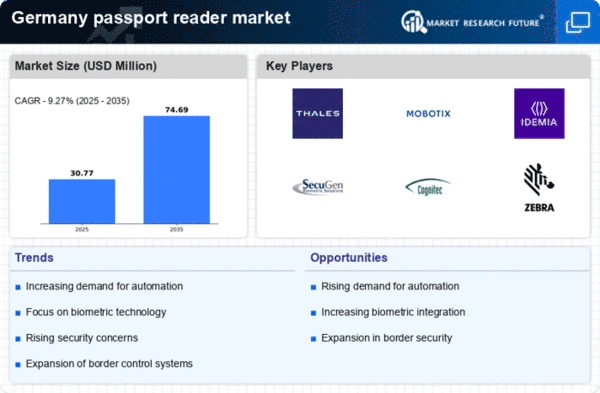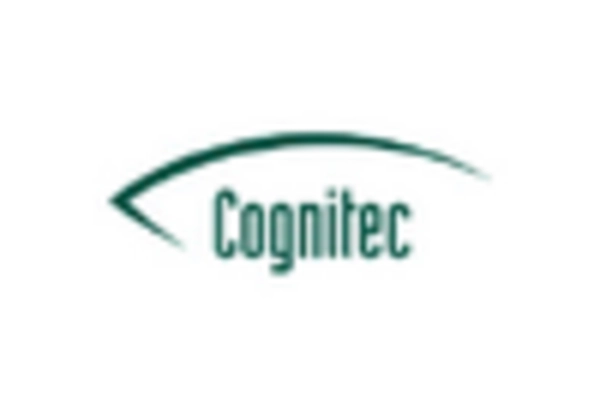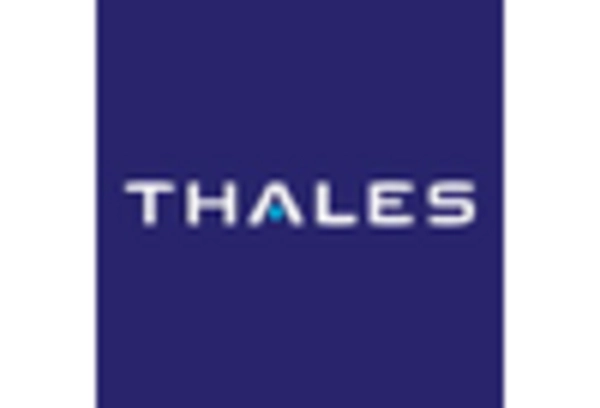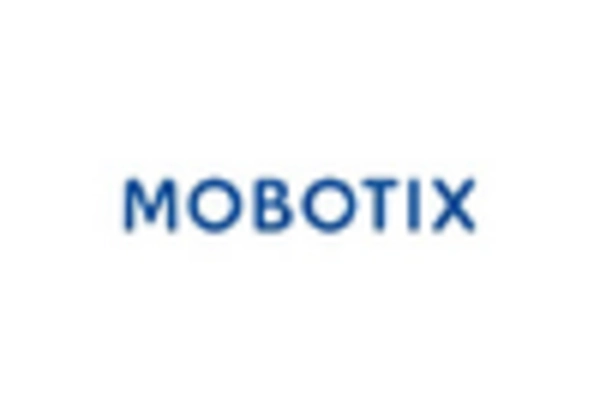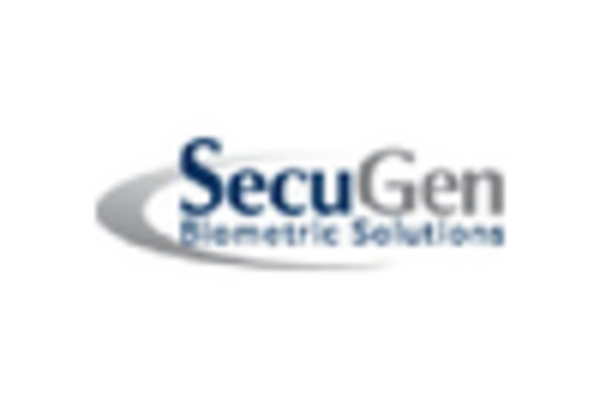Increased Focus on Data Security
The passport reader market in Germany is driven by an increased focus on data security and privacy. With rising concerns over identity theft and data breaches, there is a growing demand for passport readers that ensure secure data handling. In 2025, it is expected that 60% of new passport reader installations will incorporate advanced encryption technologies to protect sensitive information. This trend reflects a broader commitment to safeguarding personal data in the travel sector. The passport reader market is thus adapting to these security needs, providing solutions that not only comply with regulations but also enhance traveler confidence in the security of their personal information.
Integration of Biometric Technologies
The integration of biometric technologies into the passport reader market is a significant driver in Germany. Biometric passport readers, which utilize fingerprint and facial recognition, are becoming increasingly prevalent in various sectors, including airports and government facilities. In 2025, it is estimated that the market for biometric passport readers will grow by 15%, reflecting a broader trend towards enhanced security measures. This shift not only improves the accuracy of identity verification but also aligns with the public's demand for safer travel experiences. The passport reader market is thus evolving to incorporate these advanced technologies, ensuring compliance with international security standards.
Rising International Travel and Tourism
The passport reader market in Germany is positively influenced by the rising international travel and tourism sector. In 2025, Germany is projected to welcome over 40 million international tourists, necessitating efficient processing systems at entry points. This influx of travelers creates a pressing need for advanced passport readers to facilitate quick and secure border crossings. The passport reader market is likely to see a substantial increase in demand as airports and immigration offices seek to upgrade their systems to handle the growing volume of passengers. This trend underscores the importance of investing in technology that enhances the travel experience while maintaining security.
Growing Need for Efficient Border Control
The passport reader market in Germany is experiencing a surge due to the increasing demand for efficient border control systems. As international travel continues to rise, the need for streamlined processing at borders becomes paramount. In 2025, the German government allocated approximately €200 million to enhance border security infrastructure, which includes the implementation of advanced passport readers. This investment aims to reduce wait times and improve the overall traveler experience. The passport reader market is thus positioned to benefit from this governmental focus on modernization and efficiency, as more airports and border checkpoints adopt these technologies to manage the growing influx of travelers.
Government Initiatives for Digital Transformation
Government initiatives aimed at digital transformation are significantly impacting the passport reader market in Germany. The German government has launched several programs to digitize public services, including border control processes. By 2025, it is anticipated that 70% of border control points will utilize automated passport readers as part of this initiative. This shift not only enhances operational efficiency but also aligns with the broader goal of improving public service delivery. The passport reader market stands to gain from these initiatives, as they encourage the adoption of innovative technologies that streamline processes and enhance security measures.


